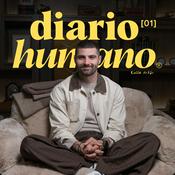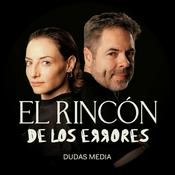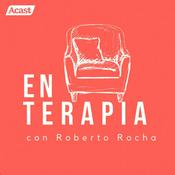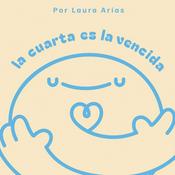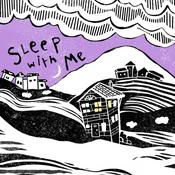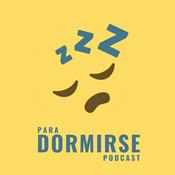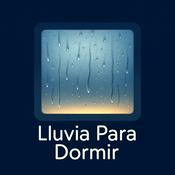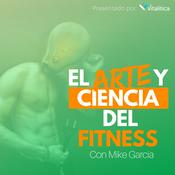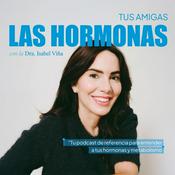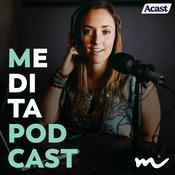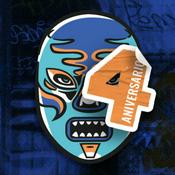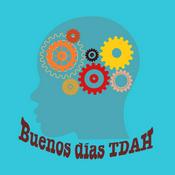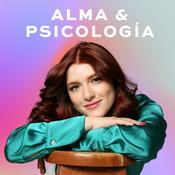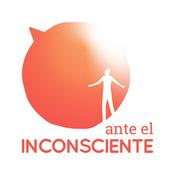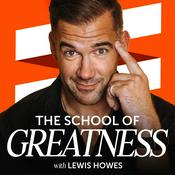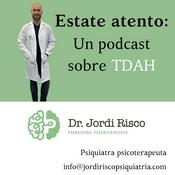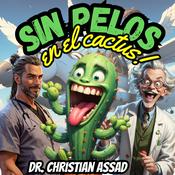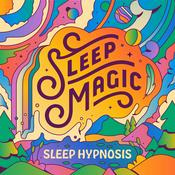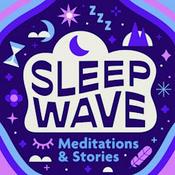Psychoanalysis On and Off the Couch
Harvey Schwartz MD
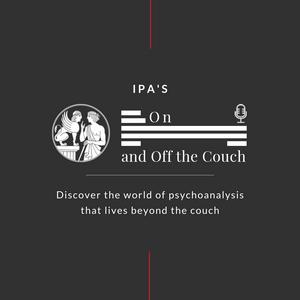
Último episodio
114 episodios
- "To come back to this idea of 'groaning' - I really like it because I think it's a good description of the work we do, but particularly because it refers to Antonio Ferro's concept of the absorbency of the frame, which I think is another way of referring to it, that the frame can take a little give and take, that there's something organic about it. It has a structure, but it's absorbent, it can move, it's alive. So that is a very important concept. I think a lot of younger analysts or psychotherapists who want to be inspired by psychoanalysis don't let themselves feel comfortable letting things happen first before they try and immediately intervene and feel that they have to have some kind of magical response to it."
Episode Description: We begin by unpacking the meanings contained in the metaphor of the 'groaning' analytic frame. Allannah speaks of flexibility, containment and "the expectation of misunderstanding." She shares the importance of the analyst having a sense of an internal frame which is then introduced to the patient and which contrasts with their assumptions of social relatedness - "Too much comfort in the relationship can lead to a pseudo-analysis." We take up the concept of the 'co-created' frame and touch upon the reflections of Aulagnier, Rothstein and Aisenstein. Allannah shares her thinking on the issue of charging for missed sessions and describes her reconsideration of her personal analytic experience with this. We close with a comment on the analyst's internal frame which enables them to "hear the patient in an out-of-the-ordinary way."
Our Guest: Allannah Furlong, Ph.D., a psychologist and psychoanalyst, is a member of the Société psychanalytique de Montréal. After serving on the IPA North American Editorial Committee, she was one of the original members of the IPA Committee on Confidentiality and organizers of the first interdisciplinary Inter-Regional Conference on Confidentiality. These collaborations led to the co-editorship of two books on issues of confidentiality in psychoanalysis. In addition, Dr. Furlong has written on the frame, missed sessions, informed consent in psychoanalysis, and the use of clinical material for teaching or publication. She has also written about the temporality of lovesickness, unconscious choice, and dehumanization as a shield against helpless openness to the other, for which she received the JAPA Prize for excellence in psychoanalytic scholarship. Her current research is on the subject-creating function of baby talk.
Recommended Readings:
M., Baranger, W., & Mom, J. 1983. Process and Non-Process in Analytic Work. International Journal of Psychoanalysis 64:1–15.
Bass, A. 2007a. When the Frame doesn't Fit the Picture. Psychoanalytic Dialogues 17:1–27.
Bleger, J. 1967. Psycho-analysis of the psychoanalytic frame. In Symbiosis and ambiguity: a psychoanalytic study, 1–13, trans. S. Rogers and edited by J. Churcher & L. Bleger. London: Routledge, 2013.
Caper, R. 1992. Does Psychoanalysis Heal? A Contribution to the Theory of Psychoanalytic Technique. International Journal of Psychoanalysis 73:283–292.
Donnet, J.-L. 2001. From the Fundamental Rule to the Analysing Situation. International Journal of Psychoanalysis 82:129–140.
Ogden, T. H. 1992. Comments on Transference and Countertransference in the Initial Analytic Meeting. Psychoanalytic Inquiry 12:225–247.
Roussillon, R. 2015. An Introduction to the Work on Primary Symbolization. International Journal of Psychoanalysis 96:583–594.
Stern, S. 2009. Session Frequency and the Definition of Psychoanalysis. Psychoanalytic Dialogues 19:639–655 The Syntax of Trauma: Parasitic Language, Metaphor and Metonymy with Dana Amir, PhD (Haifa, Israel)
25/1/2026 | 58 min"A saturated state is a state in which the conceptual or emotional object has absolute value, it is already stacked or closed to new meanings and therefore cannot undergo any kind of transformation. An unsaturated state, on the other hand, is a state in which the emotional or conceptual object is in an open state in which it is still open to transformation, to new meanings, to all kinds of change. What I think is interesting and important is to understand that one of the most difficult aims of working with traumatic objects is linked to this transformation from saturated to unsaturated states. Traumatic objects become fixed in a saturated state, which does not allow them to undergo any transformation within the psyche or within the therapeutic analytic process. The saturated state of traumatic events or objects is a frozen state in which therapy or analysis is used to preserve rather than intervene. This creates, in quite a few cases, a situation that I call false therapy or false analysis - a process, a therapeutic process in which very detailed materials are ostensibly presented, but in fact they are presented in a way that forces the therapist or to either swallow them as they are, or vomit them up but not digest them because they are presented in a way that does not tolerate any intervention, any other point of view, any creation of movement within the given frozen narrative."
Episode Description: We begin with describing the difference between 'saturated' and 'unsaturated' memories - those that are frozen and without the freedom to reflect from those that contain the capacity to create new meaning. Dana emphasizes the importance of not simply collecting the particulars of a trauma, the 'notes', as much as attending to the nature of its delivery, the 'music' - "the way they tell the story." She presents a case involving 'parasitic language' where imitation of the other is at the level of fetishistic attachment lacking a voice of their own. In her countertransference she noted "I search for you - all I find is myself." We consider how this pseudo-relating induces a peculiar sense of closeness that ultimately contributes to a sense of claustrophobia in the analyst. She shares with us her personal story and reflects "Being a psychoanalyst doesn't mean giving up being a musician." Dana concludes with reading her final paragraph on 'forgiveness.'
Our Guest: Dana Amir, PhD., is a clinical psychologist, supervising and training analyst at the Israel Psychoanalytic Society, full professor, and head of the interdisciplinary doctoral program in psychoanalysis at the Zramim Postgraduate Psychoanalytic Psychotherapy Program at Haifa University, poetess and literature researcher. She is the author of seven poetry books, four memoirs in prose, and five psychoanalytic books published by Routledge. She was awarded literary as well as academic prizes, including seven international psychoanalytic awards, including the prestigious Sigourney Award (2025).
Recommended Readings:
Amir, D. (2012). The Inner Witness. The International Journal of Psycho-analysis, 93:879–896.
Amir, D. (2013). The Chameleon Language of Perversion. Psychoanalytic Dialogues, 23: 393-407.
Amir, D. (2016). The Metaphoric, the Metonymic and the Psychotic aspects of Obsessive-Sympomatology. International Journal of Psychoanalysis, 97, 259–280.
Amir, D. (2016). Hermetic Narratives and False Analysis: A Unique Variant of the Mechanism of Identification with the Aggressor. Psychoanalytic Review 103(4):539-54
Amir, D. (2023). "From Turning Away to Turning Toward: Adoption as Radical Hospitality". Psychoanalytic Perspectives, 21: 1–18.
Amir, D. (2024). From mind-deadness to mindedness, from collaboration to cooperation. International Journal of Applied Psychoanalytic Studies, 21(4).The Unique Characteristics of Supportive Therapy with Rodrigo Sanchez Escandon (Leeds, England)
11/1/2026 | 1 h 8 min"This patient taught me a lot. The context was that I just finished my second training as a psychodynamic psychotherapist and I felt I needed to prove a lot, and I clearly arrived with the wrong agenda. It was that if I was good enough and smart enough, a clever enough just graduated psychodynamic psychotherapist, I would manage to get into why the patient is struggling so much with the realization of his mother's cancer. That is a resistance, he didn't want to touch the topic at all. I thought that if I uncover the underlying reason why the cancer of his mother was so extremely distressing, and be able to explore with him how he's processing this, I would be helping him. I was extremely wrong. The patient was really generous with me. What I meant is he was forgiving. He clearly was tolerating me trying to push for something he really had no appetite for."
"Psychoanalysis is not only about clever interpretations. Psychoanalysis can be about the tools to help us feel what we are experiencing. And in those radical settings, you become almost the object you are projected to be and you need a frame of mind to ground you that you are not that and can offer something different. So that is why I thought it was really useful."
Episode Description: We begin with a description of the distinction between supportive and exploratory psychotherapy. Rodrigo presents clinical examples of individuals who were in crises and their capacity to be aware of their inner experiences was not available to them, hence supporting their defenses was vital. In addition, "being with them" became a key aspect of the therapeutic benefit they gained. We consider patients who are phobic about intimacy and have backgrounds where trusting others proved to be actually dangerous. He also spoke of therapists who unknowingly privilege their own need to feel like an interpretive healer in the face of their patients' more immediate need to be listened to. Rodrigo alerts us to the risks of colluding with patients' binary view of the world and recommends helping them recognize that "the therapist may not always be on their side or share their perspective" - this is the creative challenge of supportive work. We close with his sharing with us his personal journey and his appreciation that psychoanalysis can be meaningful as well in settings 'off the couch'.
Our Guest: Rodrigo Sanchez Escandón Trained as a Clinical Psychologist in Mexico City and completed his Psychoanalytic Psychotherapy training at the Mexican Psychoanalytic Association before moving to London to undertake further psychoanalytic training at the British Psychoanalytic Association (BPA). He is currently the BPA's Director of Curriculum Subcommittee. He is also the Course Lead for Adult Psychotherapies at the Tavistock and Portman NHS Foundation Trust, overseeing programmes in London and the North of England. He previously lectured in the Department of Psychosocial and Psychoanalytic Studies at Essex University, where he continues to supervise PhD students and pursue research. For seven years, Rodrigo worked extensively with individuals experiencing homelessness and complex needs, integrating psychoanalytic approaches into multidisciplinary care. He now maintains a private practice in Leeds, alongside his teaching and leadership roles.
Recommended Readings:
Winston, A., Rosenthal, R. N., & Roberts, L. W. (2020). Evolution of the concept of supportive psychotherapy. In Learning supportive psychotherapy: An illustrated guide (pp. xx–xx). American Psychiatric Association Publishing.
Winston, A., Rosenthal, R. N., & Roberts, L. W. (2020). General framework of supportive psychotherapy. In Learning supportive psychotherapy: An illustrated guide (pp. xx–xx). American Psychiatric Association Publishing.
Hellerstein, D. J., Rosenthal, R. N., Pinsker, H., & Klee, S. (1994). Supportive therapy as the treatment model of choice. American Journal of Psychotherapy, 48(1), 80–93.
Sanchez Escandon, R. (2025). Introduction to the fundamentals of supportive therapy. In Contemporary developments in supportive therapy: Principles and Practice. Palgrave.
Sanchez Escandon, R. (2025). Active and passive use of the transference. Contemporary developments in supportive therapy: Principles and practice. Palgrave.Teaching About the Dynamic Mind: Then and Now with Jonathan Shedler, PhD (San Francisco)
30/11/2025 | 1 h 7 min"We bring our patterns with us wherever we go, into every relationship, and we necessarily and inevitably bring them into the therapy relationship or the psychoanalytic relationship, because that's a relationship too. It's not a matter of choice. It simply happens. It happens everywhere. The therapist doesn't do anything to make it happen. This is the human condition. We bring our patterns. The thing that makes psychotherapy, psychotherapy, and not just another relationship, is that we do something different. What we do that's different is, instead of just repeating our same old patterns with a new person, we create the conditions where it becomes possible to notice the patterns, to recognize them, to put words to them, and understand them and discuss them. Out of that experience and that understanding comes the freedom to do things differently, to not have to repeat the same patterns. I always make a point, is that true for everyone? Does everybody need therapy? Well, everybody repeats earlier characteristic patterns. For some people, those patterns allow you to live a satisfying and rewarding life, with pleasure and connection and meaning and intimacy. So if that's the case, you're still repeating early patterns, but that's what it means to be human. However, some people are living out patterns that cause distress or limitation, that get in the way of living the life they could lead, and that's what we work with in psychotherapy and psychoanalysis."
Episode Description: We begin our conversation on the importance of communicating our basic concepts in jargon-free language. Jonathan shares with us the limitations he finds in academic psychology, where analytic ideas are meaningfully misunderstood. We work our way through his paper discussing 'unconscious mental life', the 'mind in conflict', 'disavowal' (instead of 'repression') and 'psychic continuity' (instead of 'psychic determinism') to name but a few of the topics we cover. We recognize the analytic opportunity to discover the ways that we live in the childhood 'then' as opposed to the novel 'now'. Jonathan presents clinical material to demonstrate these concepts, including his own 'disavowal' as he began his analysis. We close with an appreciation of the importance of one's own affective discovery of these otherwise unconscious forces. I also note Jonathan's passion and clarity about our work.
Our Guest: Jonathan Shedler, PhD is an author, consultant, and teacher. His article The Efficacy of Psychodynamic Psychotherapy helped establish psychoanalytic therapy as an evidence-based treatment. He's the author of over 100 scholarly articles, creator of the Shedler-Westen Assessment Procedure (SWAP) for personality diagnosis and case formulation, and co-author of the Psychodynamic Diagnostic Manual. He is Clinical Professor of Psychiatry at UCSF and a Training and Supervising Analyst at the San Francisco Center for Psychoanalysis. Follow Jonathan at: https://jonathanshedler.substack.com/.
Recommended Readings:
Schopenhauer's Porcupines by Deborah Luepnitz offers a series of case studies that read like short stories. They will give you a "feel" for what goes on in the clinical consulting room & in the mind of the clinician.
Psychoanalytic Psychotherapy: A Practitioner's Guide by Nancy McWilliams offers a readable introduction to psychodynamic concepts and thinking.
Freud and Man's Soul by Bruno Bettelheim offers real insight into the origins of psychoanalytic theory and how and why it is personally relevant to everyone.
Therapeutic Communication by Paul Wachtel offers answers to the perennial clinician question, "What do I say and how do I say it?"
Long-term Psychodynamic Psychotherapy by Glen Gabbard is the closest thing to a comprehensive course in doing psychodynamic therapy.
Introduction to the Practice of Psychoanalytic Psychotherapy by Alessandra Lema
That Was Then, This Is Now: An Introduction to Contemporary Psychodynamic Psychotherapy by Jonathan Shedler, PhDOn Transience and the Cycle of Time: Freud and Ecclesiastes with Paul Marcus, PhD (Great Neck, New York)
16/11/2025 | 41 min"The similarity between Freud and Kohelet [Ecclesiastes] is that both of them believe that there's no overarching totalistic system that integrates all the disparate experiences that one has. You have that, Freud says, in psychotics, and you have that in philosophers, and you have that in devout people - they look for systematicity. They try to cram everything into a framework of meaning. Both Freud and Kohelet reject that. They don't have a worldview in that way. However, in order to flourish, you do need a meaning-giving, affect-integrating and action-guiding set of considerations. You can't just be out there like a windowless monad floating around. There are some core beliefs and values that anchor a person, that give them footing. So there's a difference between a totalizing worldview and a workable framework that's open to critique."
Episode Description: We begin with a brief reading from On Transience and Ecclesiastes and consider how they both belong to 'Wisdom Literature' while separated by over 2000 years. Paul points out that while Freud works from a linear sense of time, Ecclesiastes (Kohelet) is drawn to the cycles of nature and human experience. He provides clinical examples that he feels are enriched by considering the teachings of Ecclesiastes which are very similar to the psychoanalytic way of thinking - "one must learn to live with what cannot be altered," the importance of the "downsizing of infantile narcissism," and recognizing that "pleasure and joy are palpable, sensual and concrete experiences." We discuss the importance of an object-related life that includes forgiveness and gratitude as well as "embracing resignation without despair." We conclude with the deeply moving time poem "To every thing there is a season/ and a time to every purpose under heaven..."
Our Guest: Paul Marcus, PhD is a training and supervising analyst at the National Psychological Association for Psychoanalysis in New York and Co-chair of the discussion group Psychoanalysis and Spirituality in the American Psychoanalytic Association. He is the author/editor of 25 books including The Spiritual Resistance of Rabbi Leo Baeck: Psychoanalysis and Religion. He is the editor of Psychoanalytic Review.
Recommended Readings:
Seow, C.L. 1997, Ecclesiastes: A New Translation. New Haven: Yale University Press
Fox, M. V., 2004, Ecclesiastes, Philadelphia: Jewish Publication Society
Heim, K.M., 2019, Ecclesiastes, Downers Grove: IVP Academic
Más podcasts de Salud y forma física
Podcasts a la moda de Salud y forma física
Acerca de Psychoanalysis On and Off the Couch
Psychoanalysis applied outside the office.
Sitio web del podcastEscucha Psychoanalysis On and Off the Couch, VE A TERAPIA y muchos más podcasts de todo el mundo con la aplicación de radio.net

Descarga la app gratuita: radio.net
- Añadir radios y podcasts a favoritos
- Transmisión por Wi-Fi y Bluetooth
- Carplay & Android Auto compatible
- Muchas otras funciones de la app
Descarga la app gratuita: radio.net
- Añadir radios y podcasts a favoritos
- Transmisión por Wi-Fi y Bluetooth
- Carplay & Android Auto compatible
- Muchas otras funciones de la app


Psychoanalysis On and Off the Couch
Escanea el código,
Descarga la app,
Escucha.
Descarga la app,
Escucha.


